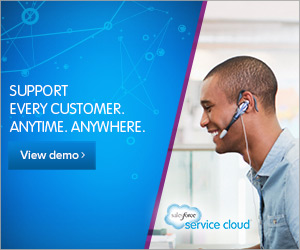For many businesses, especially in the start-up phase, it’s tempting to use free software as a way of avoiding costly license fees or locked-in contracts. There’s a lot of free software out in the world-wide-web, lots of it very good and very useful. However for business-critical areas using free software could prove to be costly in the long run. Here are five reasons you should consider free software carefully:
1.Freeware systems aren’t scalable
Freeware software is rarely designed to be run in large enterprises. It’s mostly aimed at home users and techies. If you start out with free software in your organization, you may find that, as you grow, it no-longer becomes fit for purpose and may become a hindrance rather than something of use.
2. Mixing free tools can hamper business effectiveness
If you use free software, it’s likely that the tools it offers will only be good for one thing. So you’ll need another piece of software for addressing a different business need. And another. And another. Before long, they’ll be dozens of pieces of software in operation all serving different needs with different interfaces and outputs. All of this means lots of time spent jumping from one piece of software to another distracting busy IT staff from more important tasks.
3. Lack of support
Free software may just be a developer’s hobby; there’s no guarantee they’ll still be around when your software breaks. Free tools are often unstable and unreliable; one day it may serve your need the next it could be completely useless and you’ll find yourself uninstalling it and looking for something else.
4. No clear development plan
Free software developers have no real incentive for having a development plan or roadmap. They may only release updates when they have time meaning the software user will have no clear release cycle for patches and upgrades. If you find the software to be full of bugs and errors you may have no clear idea of when it will be fixed.
5. Security / malware / advertising
Security can be a major problem in freeware. Although the software itself is free, the developers will usually get their money some other way often by bombarding the user with adverts or additional ‘free software’ like toolbars, virus scanning software or web browsers – all of which become a nuisance.
Oftentimes, free software can be infected with malware, especially if you get it from questionable sources. If you do go down the freeware route, it’s best to go to a recognized download site like cnet or sourceforge.
With the above points made, however, there is a lot of free software that it is possible to run a business on, at least in the start-up phase. Free Open Source platforms are used the world over from Linux-based operating systems to website content management tools and open source network monitoring.
The key decision is how important is the software to your business? If it’s a mission critical business area that you can’t afford to have fail, then you should consider a supported product with a clear development, maintenance, and upgrade plan. If your business relies on your software, then you need to ask the question: Is my software reliable?
About the Author: Brian has been working in the IT industry for over 15 years with experience of networking, hardware, software and information management. He can often be found writing website and blog content for Opsview, a leading provider of network monitoring software.













